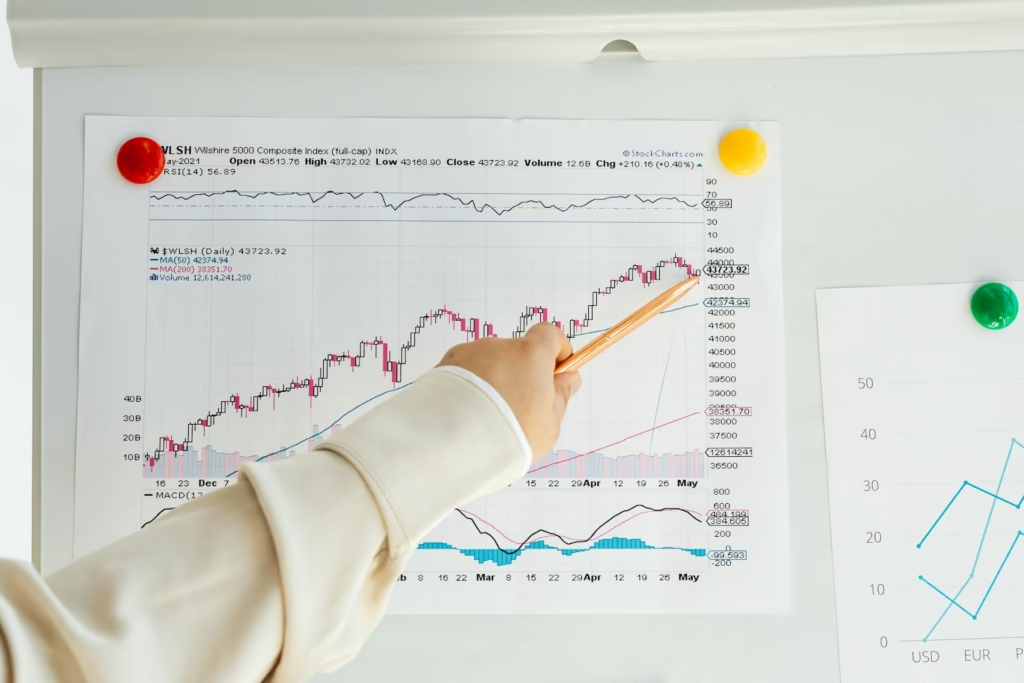How to Start Trading: A Beginner’s Guide
Trading can seem intimidating when you first start, but with the right approach and knowledge, it can be an exciting and rewarding way to build your financial future. Whether you’re interested in stock trading, cryptocurrency, forex, or commodities, the principles remain largely the same. Here’s a simple guide to help you get started with trading, even if you have no prior experience.
For More Articles And Courses Click here
1. Understand the Basics of Trading
Before you start placing trades, it’s crucial to understand what trading actually is. Trading involves buying and selling assets—stocks, currencies, or commodities—on financial markets to make a profit. The goal is to buy low and sell high, or sell high and buy low (if you’re short-selling). However, it’s not just about luck; successful traders use strategies and analysis to make informed decisions.
Key Strategies for Success in Trading:
Leverage: Using borrowed funds to maximize potential returns, but with caution to avoid significant losses.
Technical Analysis: Using historical price data and chart patterns to predict future price movements.
Fundamental Analysis: Analyzing economic indicators, financial statements, and news events to assess the value of an asset.
Risk Management: Protecting your capital with stop-loss orders, position sizing, and portfolio diversification.
Market Trends: Identifying and following market trends to make informed buying and selling decisions.
Table of Contents
2. Choose Your Market
There are different types of markets where you can trade, and it’s important to pick one that fits your interests and goals:
- Stocks: Buying and selling shares of companies.
- Forex: Trading currency pairs (like USD/EUR).
- Cryptocurrency: Trading digital currencies like Bitcoin, Ethereum, etc.
- Commodities: Trading things like gold, oil, or agricultural products.
Do some research on each market to determine which one you’d like to focus on. Many beginners start with stocks or cryptocurrencies because they are more accessible.
3. Learn How to Analyze the Market

There are two main ways to analyze markets: technical analysis and fundamental analysis.
- Technical analysis involves studying charts and past price movements to predict future market trends. This approach uses indicators, patterns, and volume to make trading decisions.
- Fundamental analysis looks at the economic factors that might affect an asset’s price, such as company earnings, interest rates, and global events. For example, if a company announces strong earnings, its stock price might rise.
As a beginner, it might be helpful to start with technical analysis, as it’s more accessible and easier to learn in the beginning.
4. Choose a Reliable Broker or Platform
A broker is a middleman that facilitates your trades. Choosing a reliable, well-regulated broker is essential, as they will provide you with the tools and resources to make trades. Most brokers also offer demo accounts where you can practice trading with virtual money before risking your own funds.When selecting a broker, here are a few factors to consider:
- Fees and commissions: Make sure the broker’s fees fit your trading style.
- User interface: The platform should be easy to navigate.
- Regulation and reputation: Look for brokers that are regulated and have good reviews from other traders.
Popular trading platforms include Robinhood (for stocks), Coinbase (for crypto), and MetaTrader (for forex).
5. Start Small and Practice
When you’re just starting, it’s crucial to avoid going all in. Start small—only trade with money you can afford to lose. Many platforms allow you to trade in smaller amounts, so you can get a feel for the market without risking a significant portion of your funds.
You can also open a demo account (offered by most brokers) to practice without any financial risk. This is an excellent way to test your strategies and gain confidence.
6. Develop a Trading Strategy
Trading isn’t about guessing or gambling; it’s about having a strategy. Successful traders typically follow a trading plan that outlines their goals, risk tolerance, and specific strategies. Some basic strategies include:
- Day trading: Buying and selling within the same day to take advantage of small price movements.
- Swing trading: Holding positions for a few days or weeks, trying to capitalize on short-term trends.
- Position trading: Long-term trading where positions are held for months or even years.
Whatever strategy you choose, stick to it. Avoid chasing quick profits or getting swayed by market hype. A disciplined approach is key to success.
7. Manage Your Risk
One of the most important aspects of trading is managing your risk. Every trade carries the risk of losing money, but with proper risk management, you can limit your losses and protect your capital. Some risk management techniques include:
- Setting stop-loss orders: These are automatic orders that sell your asset if it reaches a certain price, limiting your losses.
- Never risking more than 1-2% of your capital on a single trade: This ensures you won’t lose everything in a single trade.
- Diversifying your portfolio: Don’t put all your eggs in one basket. Spread your investments across different assets or markets.
8. Stay Patient and Keep Learning
Trading is a skill that takes time to develop. It’s essential to stay patient, as learning from both your successes and failures will help you grow. Even experienced traders continue to educate themselves, whether by reading books, attending webinars, or practicing new strategies.
You can also learn from other traders by joining online communities or forums where they share tips and strategies.
Final Thoughts
Getting started with trading can be an exciting journey, but it’s important to approach it with caution and a clear strategy. By understanding the basics, choosing the right market, practicing with demo accounts, and managing your risk, you can build your trading skills and improve your chances of success.
Remember, trading is not a get-rich-quick activity—it’s about making consistent, informed decisions. Keep learning, stay disciplined, and you’ll improve over time.

